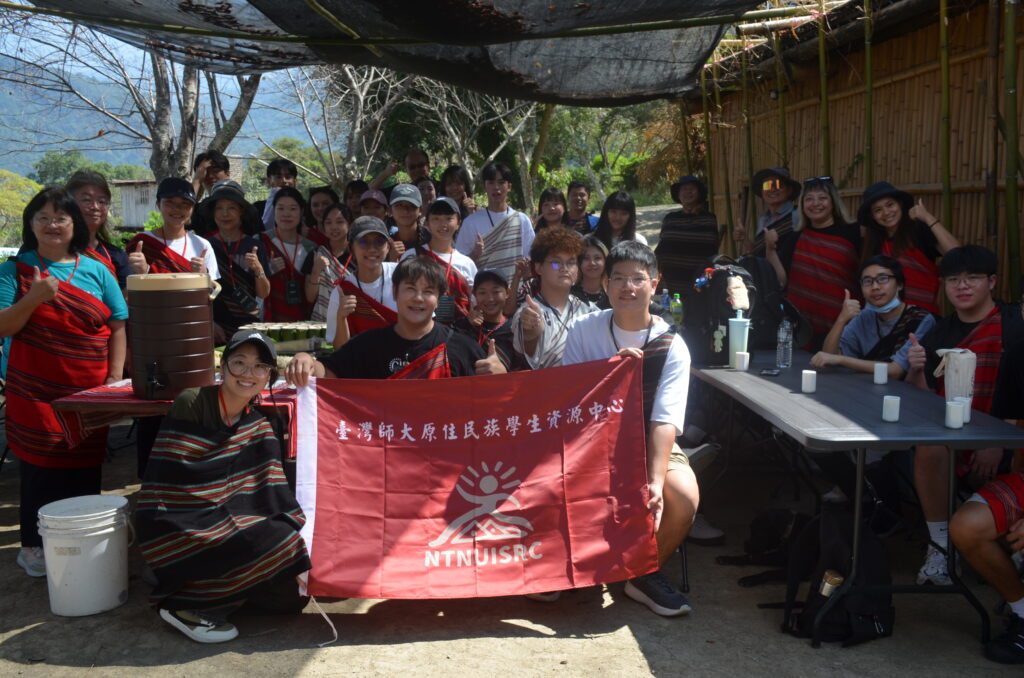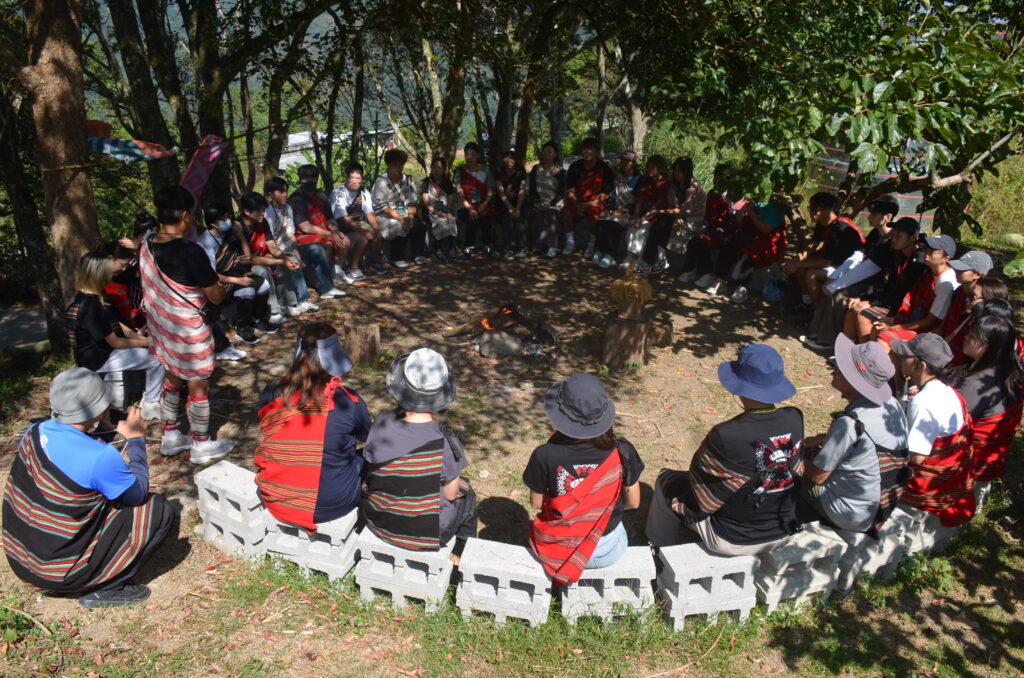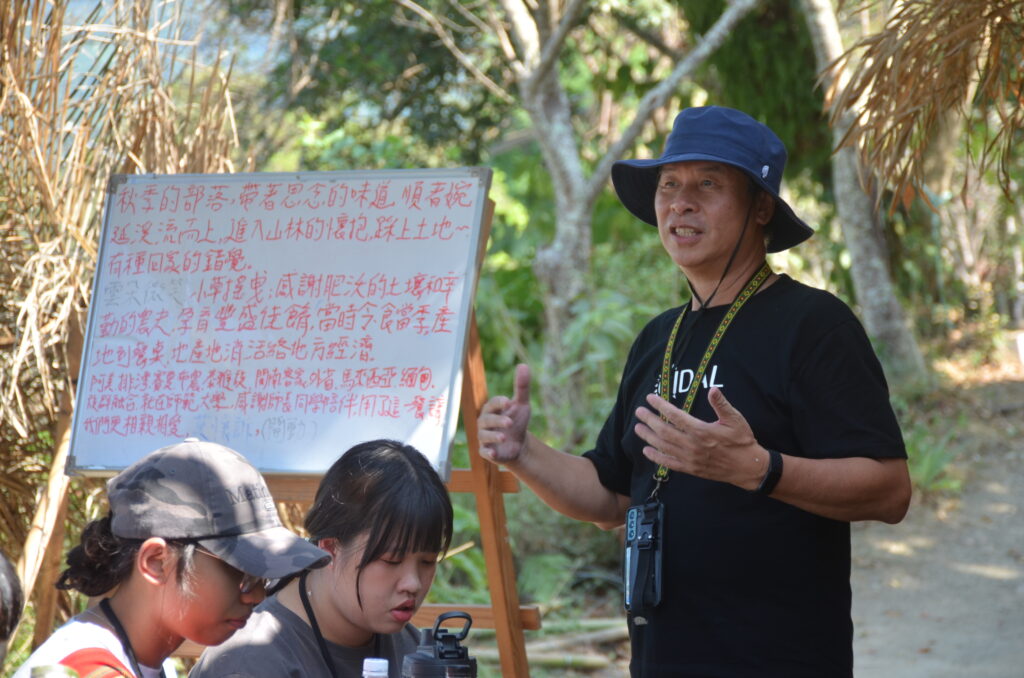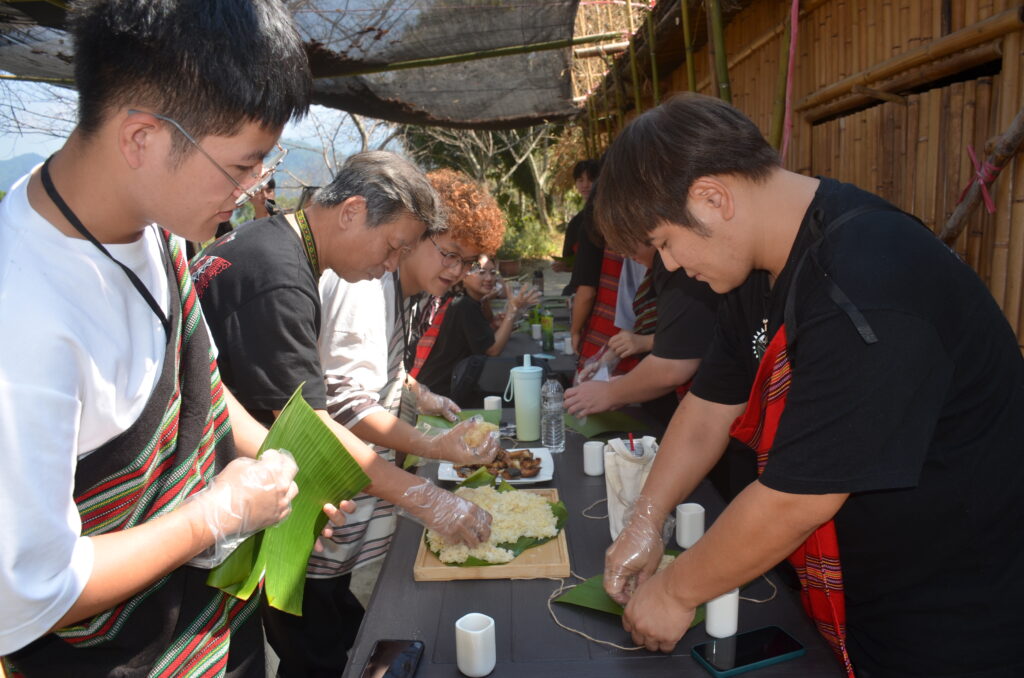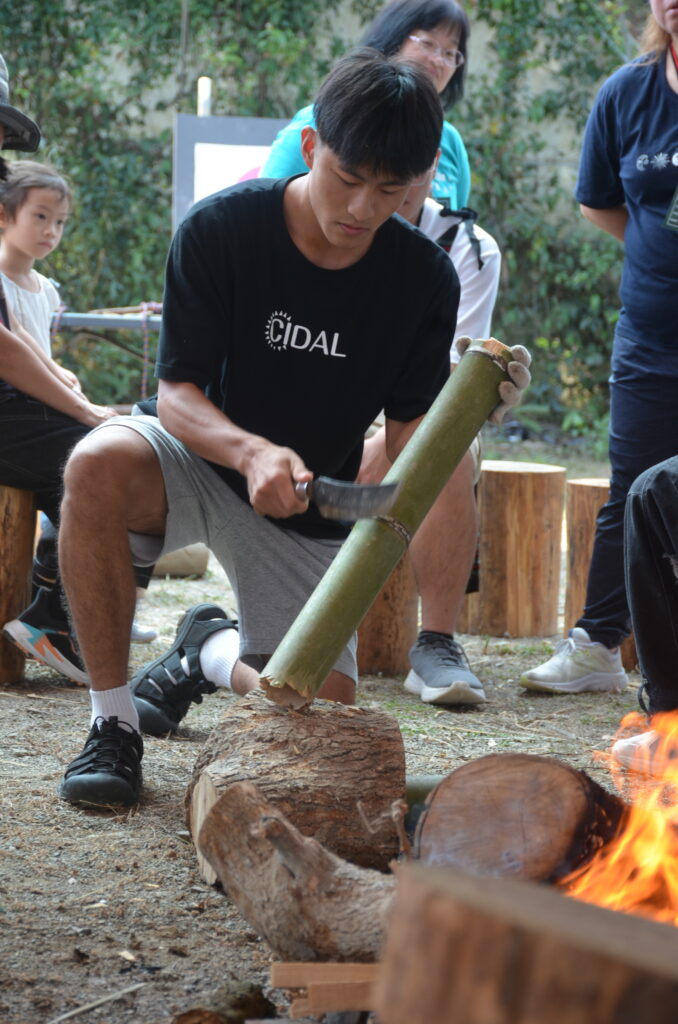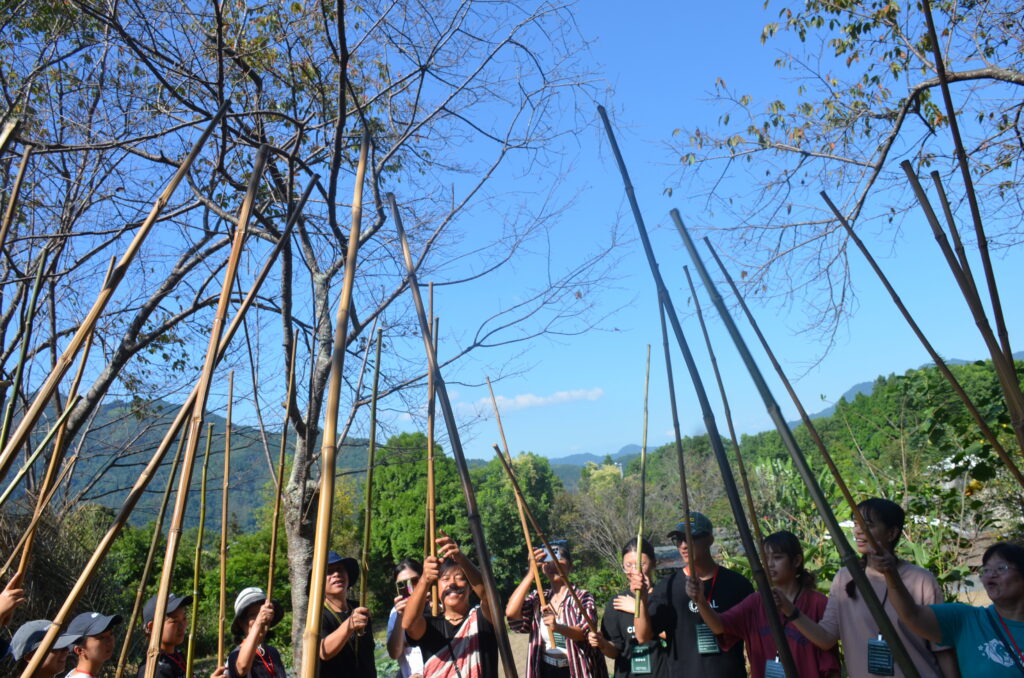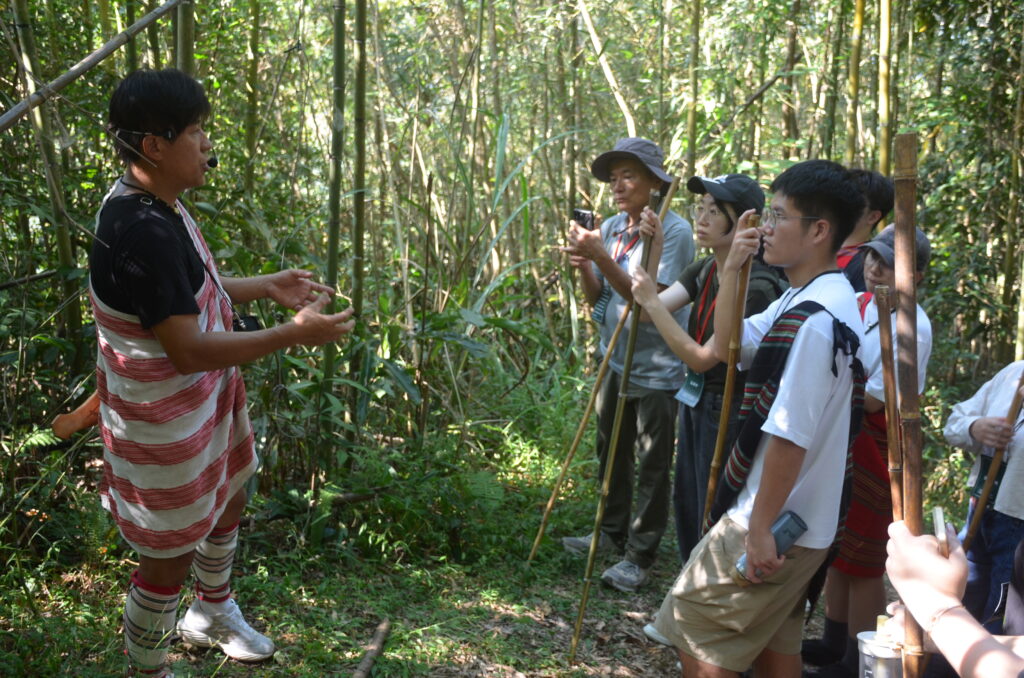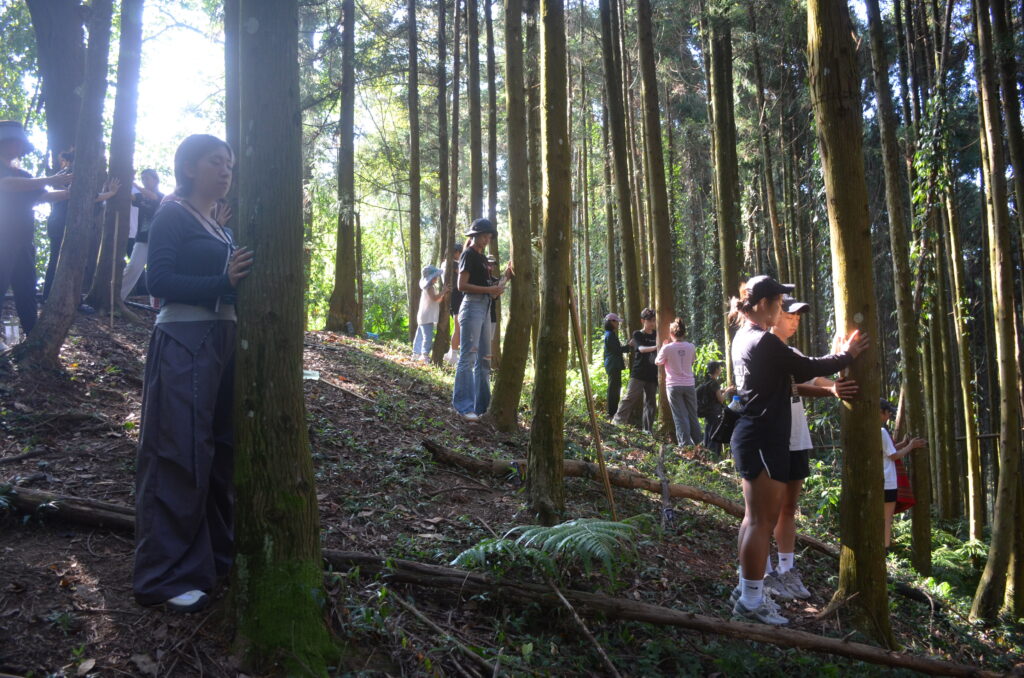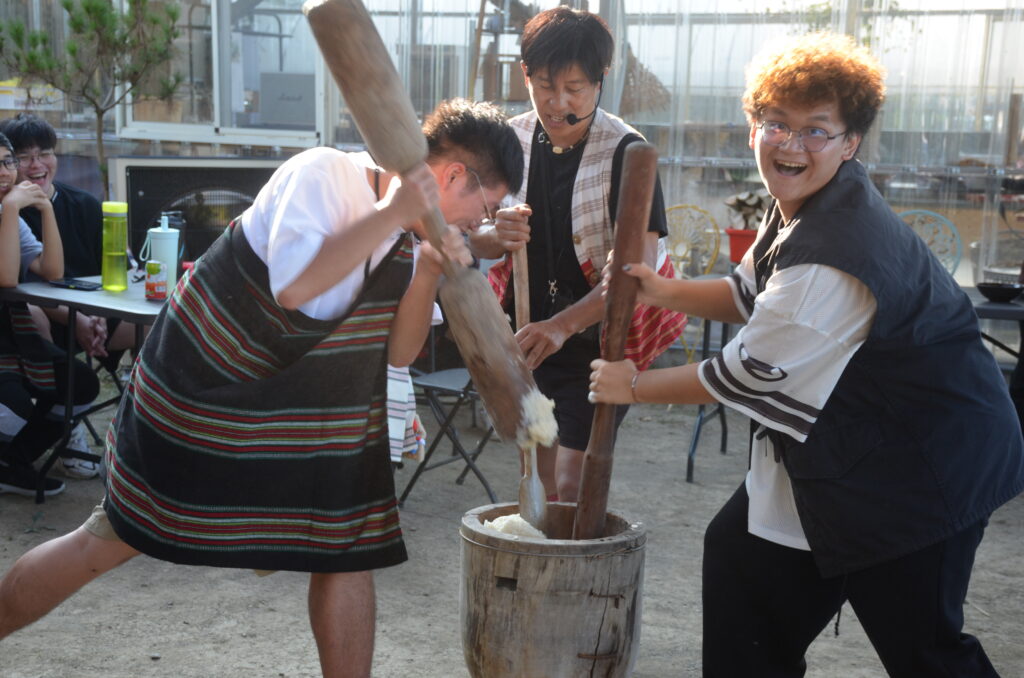To echo the spirit of “Indigenous Education for All” and deepen faculty and students’ understanding of Indigenous education and culture, the NTNU Indigenous Student Resource Center held the “Mountain Hunters: The Emerald Path” cultural immersion trip on October 18. Participants visited Heping Village in Wufeng Township, Hsinchu County, to explore how a young Atayal farmer returning home integrates traditional culture with agricultural experiences and eco-tourism to promote sustainable community development.
Director Huang Chih-Hsiang noted that Malai Farm represents a model of community tourism that balances environmental friendliness with cultural promotion. From the symbolic blessing ritual featuring the Atayal shawl and millet wine ceremony that immersed visitors in Atayal traditions, to crafting bamboo utensils and learning about sustainable use of natural resources, and finally to the “farm-to-table” dining concept, every activity reflected the farmer’s respect and care for the land.
Under the Acacia Trees — Listening to the Echoes of Land and Culture Under the Acacia Trees — Listening to the Echoes of Land and Culture
In the cool autumn air of Heping Village, the fertile soil and winding mountain roads exuded the scent of fruit and earth, guiding visitors into the heart of the forest. Setting foot on the land evoked a profound sense of homecoming.
Ipay, a staff member of the Resource Center, explained that situated at an elevation of around 700 meters, Heping Village’s climate is ideal for growing high-altitude fruits and vegetables. Among the many community farms, Malai Farm was chosen for this trip because of its ability to integrate Atayal cultural values into every learning experience, allowing participants to “learn by doing” and build new connections between culture and community industry.
“The acacia trees along the ridge remind our people never to forget the road home,” said Malai, the young farmer who returned to his homeland. “Coming home doesn’t mean going back to the past—it means finding that piece of land within your heart.” Understanding that local resources are limited, Malai advocates for diverse land use to achieve sustainable forestry. He believes that maintaining the white purity of heart, red passion for learning, and black wisdom of elders will guide youth to rediscover their identity through the land. Malai shared that every dish prepared that day carried a story of the community: pumpkins from Yayun Farm, and Hunter’s Rice and Bamboo-Steamed Eggs from Hani Farm. “From the land to the table, every meal embodies the spirit of cooperation and the philosophy of eating locally,” he said.
Wang Tzu-Chen, a senior in the Department of English, shared that this was her first time joining an activity organized by the Indigenous Student Resource Center. “I truly appreciate the university’s effort,” she said. “Immersing myself in Atayal culture for an entire day was deeply fulfilling—I’ve seen how the Atayal people cherish and utilize their land, maintaining their industries through sustainable forest-based practices. I invite everyone to visit the village and let the forest heal your soul.”
Exploring Community Industries — Clarifying the Blueprint for Returning Home
Sun I said he grew up in the mountains and feels a strong sense of cultural identity. His family runs a fruit orchard, and this trip made him rethink the future of his hometown’s agricultural industry. “This visit taught me a lot about farm management and helped me clarify what I want to do for my community,” Sun said. “I hope to introduce more efficient farming practices so that small farmers can develop high-quality, specialized agriculture.”
Currently studying in the Department of Civic Education and Leadership, Sun has a background in scouting and rope-based outdoor education. He plans to combine camping and forest therapy to create an Indigenous campsite that integrates cultural learning with adventure education. During the upcoming winter break, he will apprentice with Atayal craftsman Wei Chien-Fu to learn traditional house-building, rattan weaving, and archery. “These traditions are the roots of our people,” he said. “They are what I wish to protect.”
Continuing the Mission of Indigenous Education Hana, NTNU’s Indigenous Student Advisor, added that the Resource Center continues to design diverse activities to help NTNU Indigenous students reconnect with their cultural memories and communities. On November 10, the Center will host the “Memory” Photography Exhibition themed “Tribal Rituals”, showcasing Indigenous life and spirituality through images.
Director Huang Chih-Hsiang further emphasized that NTNU remains committed to advancing Indigenous Education for All. The initiative has attracted participants from diverse backgrounds, including international students from Myanmar and Malaysia, enriching cross-cultural understanding and fostering inclusivity on campus. Upcoming events include the 30th Northern Taiwan Intercollegiate Indigenous Language Singing Contest on November 29, and the 5th NTNU Lima Cup Indigenous Student Games on December 7, which aim to promote language preservation, cultural expression, and intercollegiate unity.
Through learning and shared experiences, participants witnessed the wisdom and vitality of Indigenous cultures. As understanding replaces distance and respect turns into action, the memory of culture continues to be seen, heard, and carried forward.
(Report by Lin Tzu-Chun, Graduate Institute of Teaching Chinese as a Second Language, NTNU Campus Reporter. Edited by Chang Shih and reviewed by Hu Shih-Tse.)
Registration link: https://pr.ntnu.edu.tw/ntnunews/index.php?mode=data&id=23884
